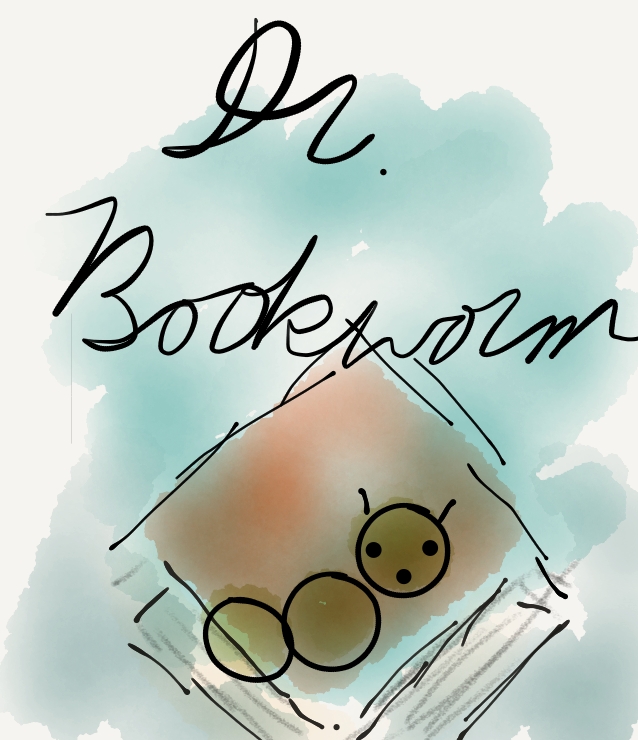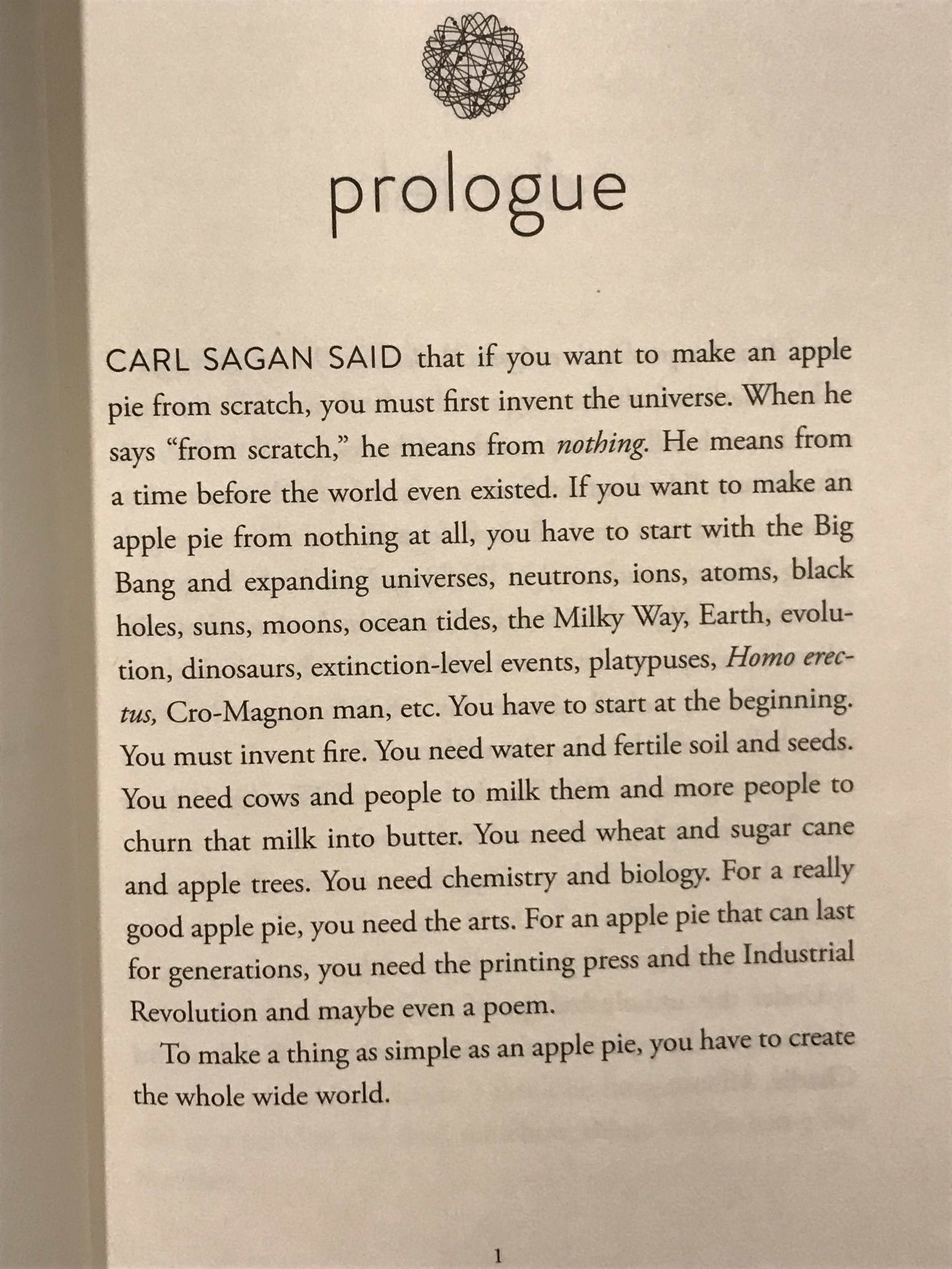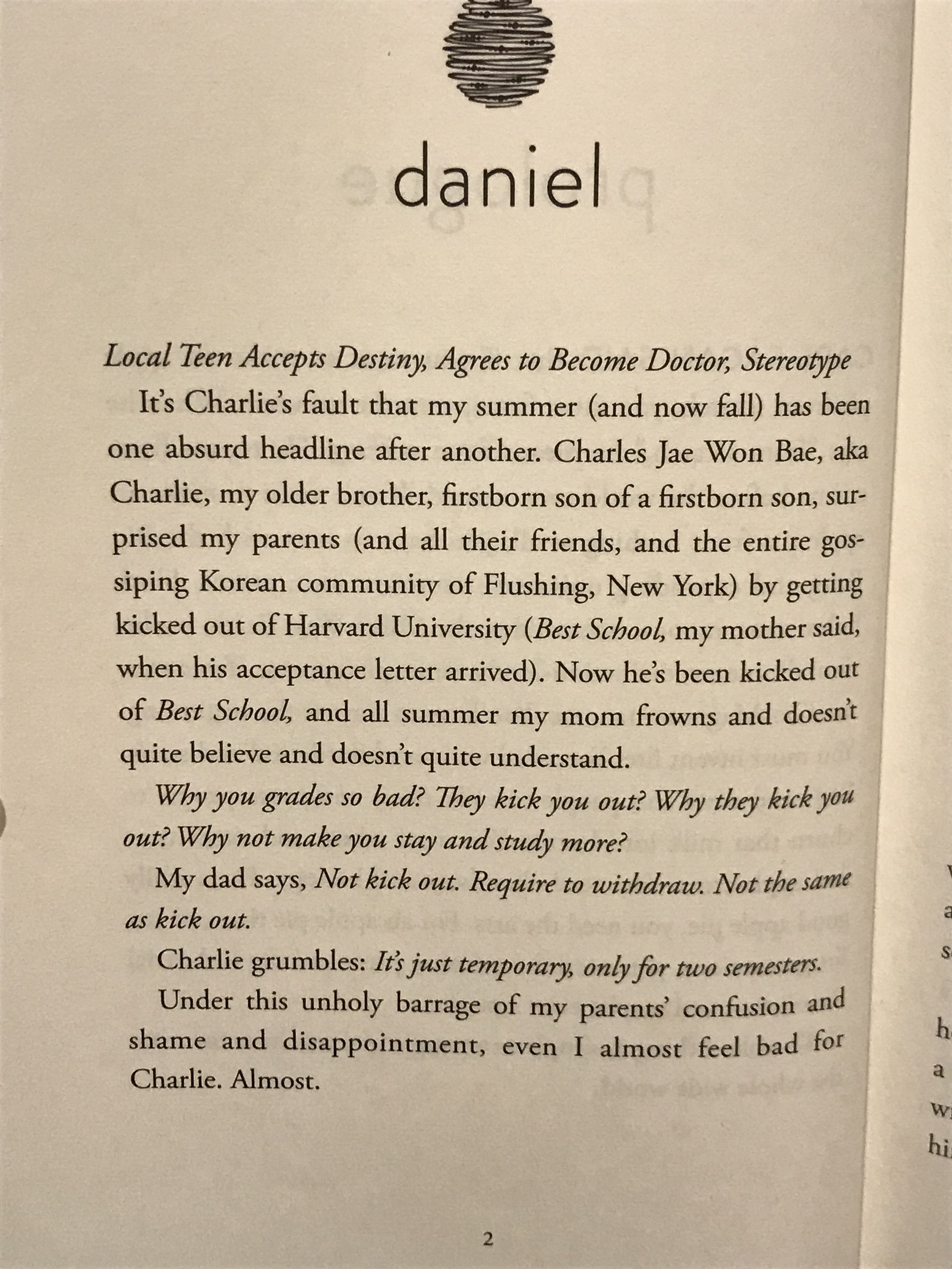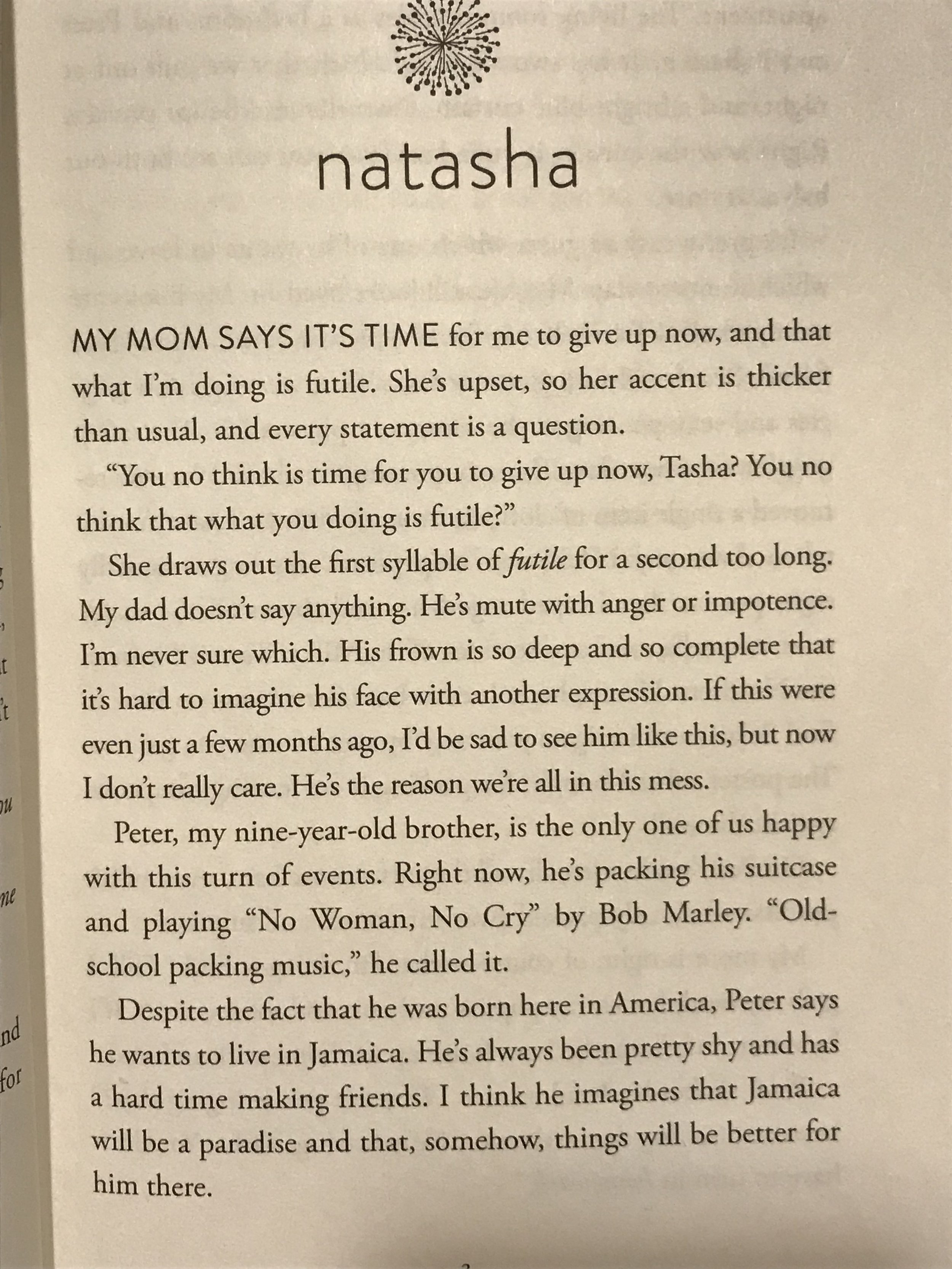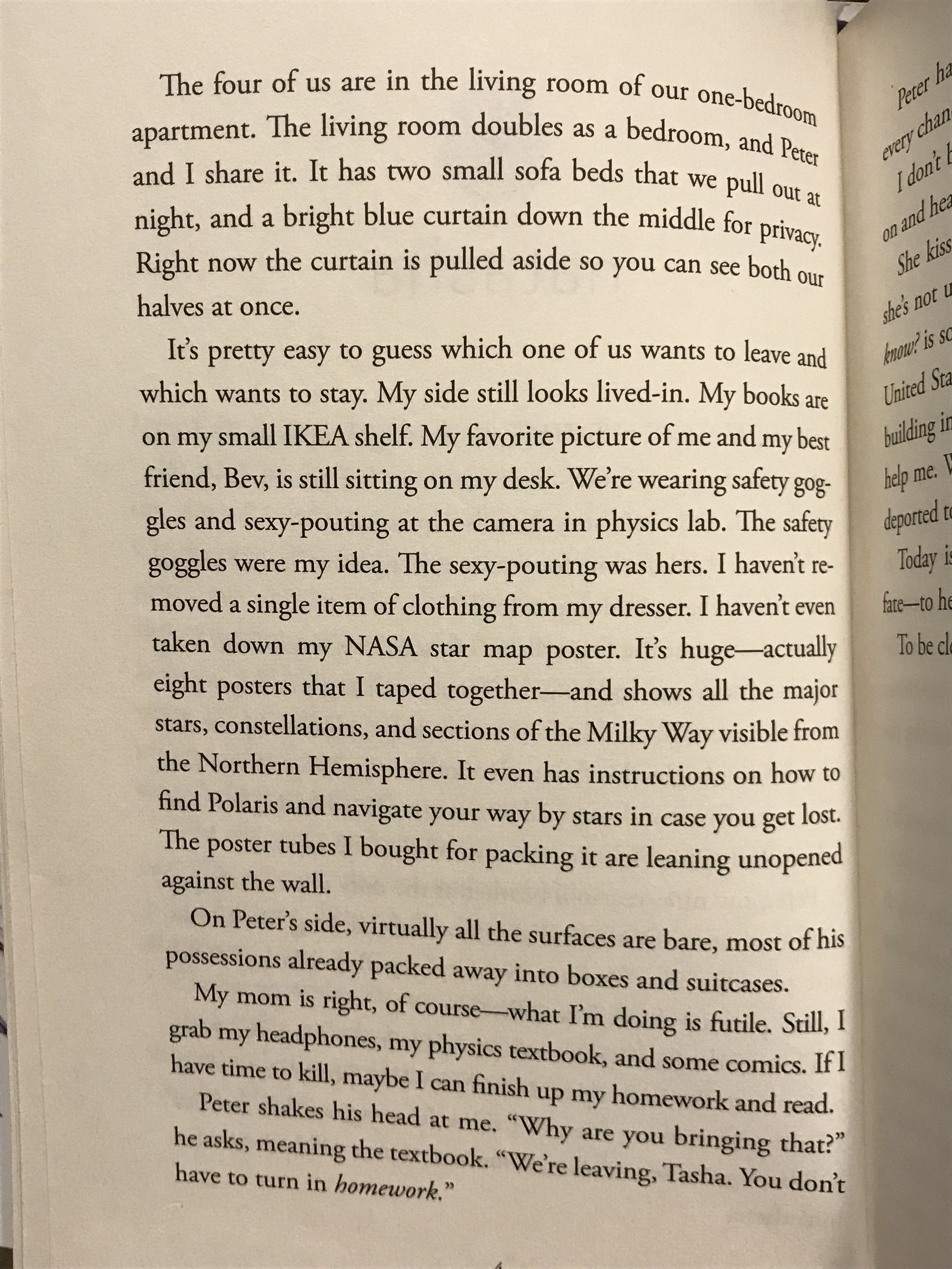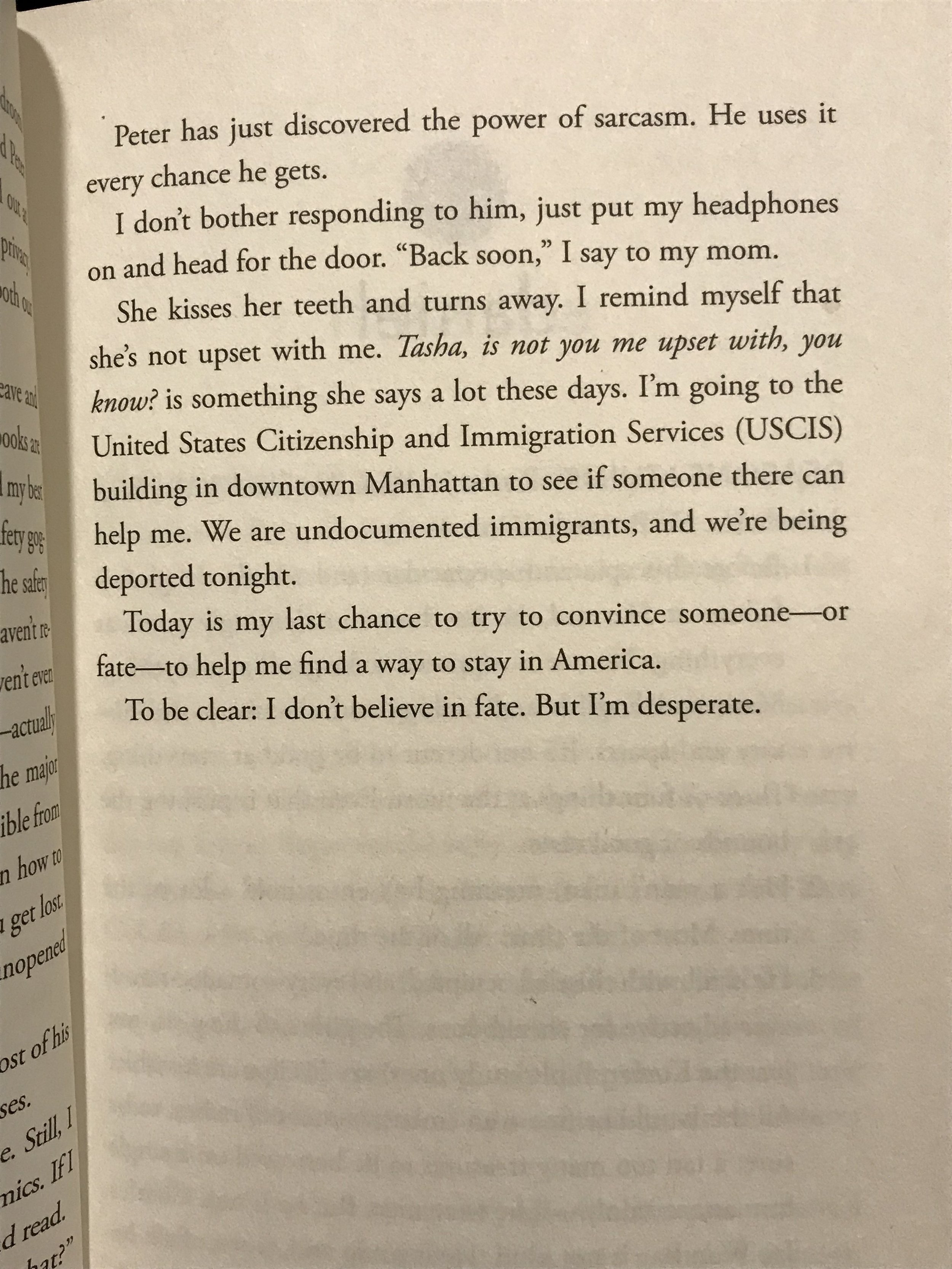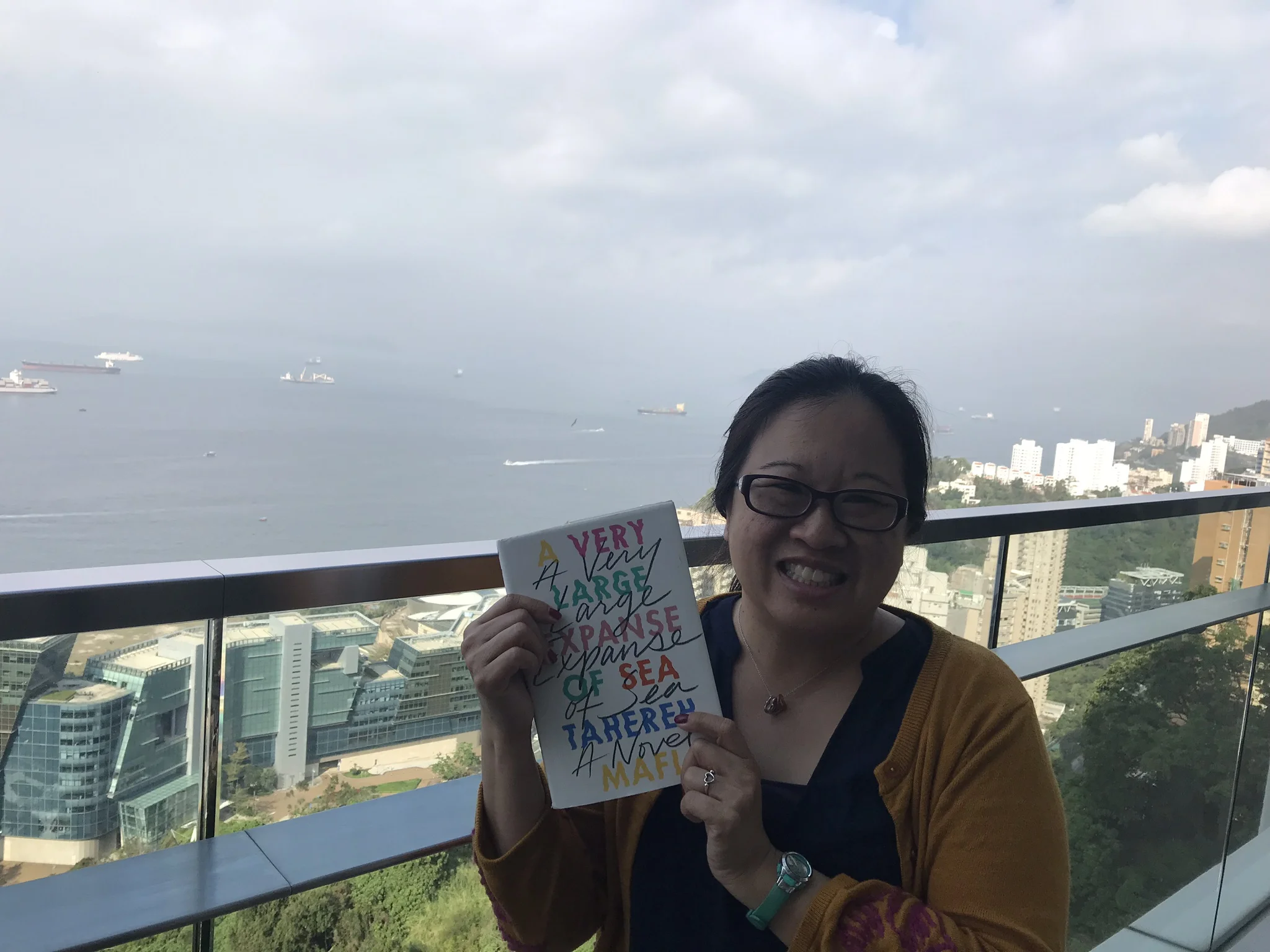Book Vs Movie: The Sun is Also a Star
So I didn’t make it to the finish line. Yet. I wanted so badly to re-read The Sun Is Also a Star by Nicola Yoon before watching the movie last Sunday. I only got a third of the way through due to work and family obligations. (It’s a busy time of year.)
As always (now) , I try to watch the movie without my book goggles on. Especially with a book that I loved as much as The Sun Is Also a Star. When this book first came out in 2016, we were in the heart of talk about deportations. Still now there is so much up in the air regarding DACA and dreamers and undocumented immigrants in the U.S. And, of course, the border wall. This book (and film) are a firm reminder of the people behind the numbers that we hear about.
[SPOILER ALERT!]
I love the intricacies in the novel. If you follow this blog, you know that I don’t like multiple POVs in a novel, definitely moreso if it’s more than two points of view. However, the further I read in The Sun Is Also a Star, the more I realized the interconnectedness between the characters and the chance and not-so-chance happenings.
Here’s what I missed in the film version (DO NOT READ IF YOU DON’T WANT TO BE SPOILED!):
Nirvana and Kurt Cobain—he’s central to the story as is the music, but it’s missing.
Irene, because Natasha and Daniel make a difference in her life, and I like her part in the aftermath of the book. And also, there’s a connection with her and Nirvana.
So many internal things, but one of the important ones is that there is no mention of Charlie getting kicked out of Harvard, which is a big deal in Daniel’s story line. If you just watch the movie, you might assumed that Charlie didn’t go to college at all and has just been working at his parents’ shop.
Here’s what’s amazing in the film:
Yara Shahidi and Charles Melton-great acting and great chemistry
New York scenes—fantastic images that really MAKE the film
the interplay between Jake Choi and Melton as brothers. Great tension and awkward (on purpose) moments.
the parents—all FOUR of them! I love Natasha’s parents and Daniel’s parents. I love that they show snippets of Natasha as a child and her moments with her family, especially with her dad. The film also shows Daniel’s first birthday ceremony, which is a big deal in Korean and Korean-American families.
The montages: There are many moments in the film that are picture montages or film montages that are done differently than traditionally. A close-up moment of multiple split images of Natasha, showing the many things that could change for her depending on a million different decisions made in the universe. Natasha closing her eyes during Daniel’s karaoke moment and seeing them live a lifetime together.
In the end, however, I’m a bibliophile and I love reading the words on the page. I feel a deeper intimacy for the characters in the novel, and the film cannot capture the tiny little moments that connect each person in the universe to the other. And, the end still bothers me a bit in both versions. (Though I admit I read the book ending a million times.) It leaves me wanting more, as all good books should do.
So, book versus movie? It’s almost ALWAYS going to be book for me and this is no different. However, the film is well worth seeing as a ‘version’ of the novel. Though some parts feel slow-moving, there’s definitely a lot to SQUEE about, especially with Yara Shahidi and Charles Melton as the leads. :D
Diversity side note: Natasha Kingsley is a Jamaican immigrant who moved to the U.S. when she was eight. Daniel Bae is first generation Korean-American. The deportation issues are real and pertinent to our current political times and raises a lot of good talking points. Both the novel and the film show a lot about the two differing cultures and how those cultures reflect on the two main characters. And I still say that even though I know that this is not Nicola Yoon’s personal story, I think that it’s no coincidence Natasha and Daniel have the same first initial as Yoon and her husband, David Yoon (who, by the way, has his own novel, Frankly In Love, coming out later this year. I’m still bummed that I didn’t get an ARC copy at Yallwest a few weeks ago, but I can wait until September. Maybe.)
Tell Dr. Bookworm!
Tell me, are you a Natasha or are you a Daniel?
If you’ve read The Sun Is Also a Star, do you plan on seeing the film? If you’ve experienced both versions, which would you choose to recommend to a friend?
BONUS: First Lines of The Sun Is Also a Star
First Pages of The Sun Is Also a Star: Nicola Yoon starts off The Sun Is Also a Star with a proloque that establishes the premise of the story—we are about to explore just how interconnected the world can be. What draws me in right away is that Daniel and Natasha are written with such depth.
Daniel is not the stereotypical Asian-American kid. He’s torn between two worlds as a first generation Korean-American and Yoon sets it up right away in a single page. He’s a second son who has never lived up to his older brother reputation for his parents or social community, but he’s expected to step up now that Charlie has been kicked out of Harvard. And Natasha is the story behind so many DACA and other immigrants to this country. She is intelligent and working hard to go to college and just wants to be worried about every day teenage #firstworld problems. Instead, she’s figuring out if there’s a way she can find a legal way to stay in this country.
Yoon’s opening melds both characters together: Daniel’s love for poetry and Natasha’s love for astronomy.
The first lines of The Sun Is Also a Star draws you in to their conflicts right away. And what I think makes them so succesful is that the reader is immediately invested in what happens to both of them.
First Pages note: I started the First Lines and First Pages series in November 2017 as a homage to National Novel Writing Month. In the tradition of one of my previous writing groups, I decided to 'share' the first lines of successful middle grade and YA novels in order to figure out what made them successful first pages. I posted as many as I could in November, and now post the series on the first of every month (or close to it). Please let me know in the comment section if you have any First Pages book recommendations.
